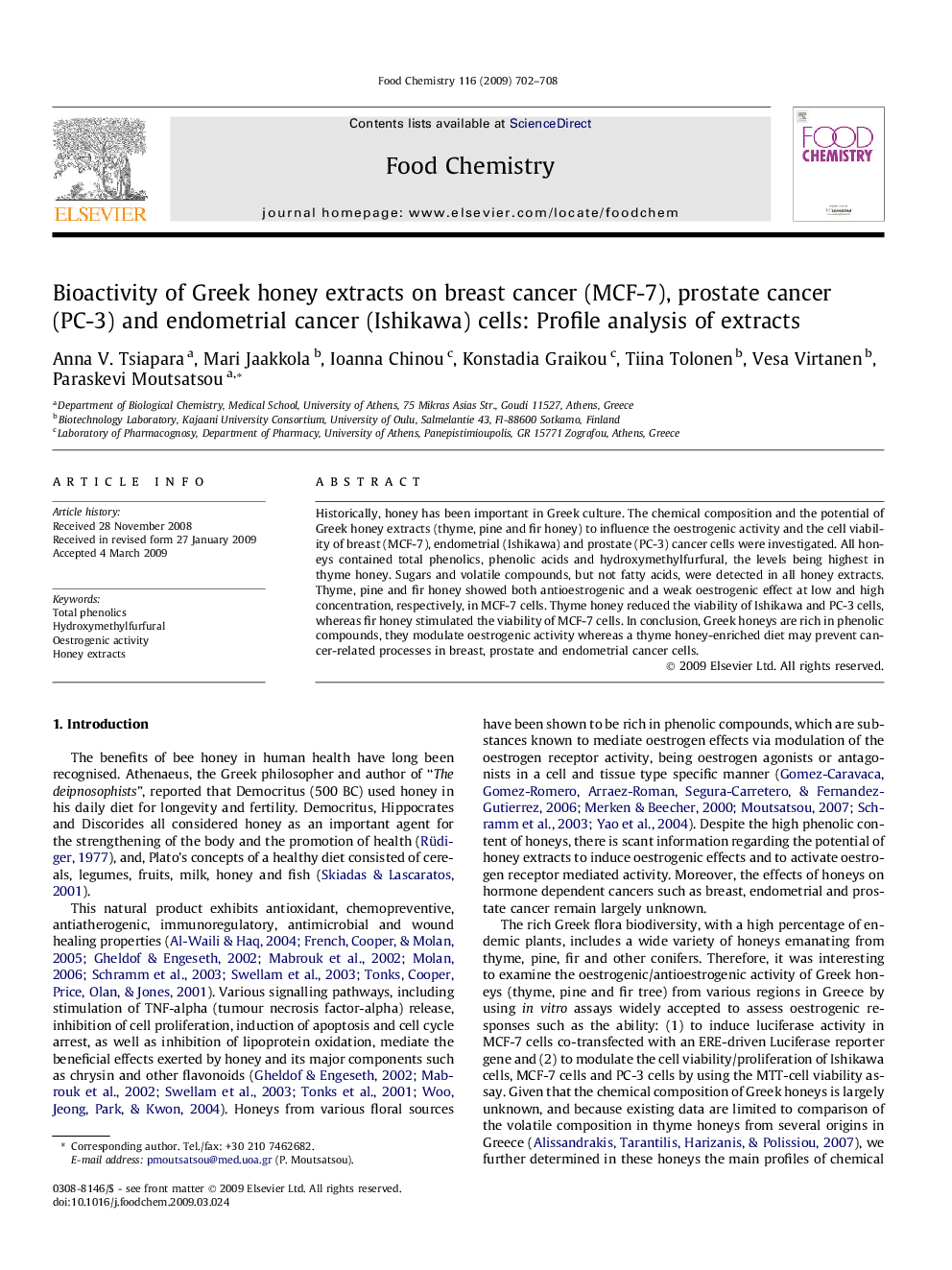| Article ID | Journal | Published Year | Pages | File Type |
|---|---|---|---|---|
| 1185948 | Food Chemistry | 2009 | 7 Pages |
Historically, honey has been important in Greek culture. The chemical composition and the potential of Greek honey extracts (thyme, pine and fir honey) to influence the oestrogenic activity and the cell viability of breast (MCF-7), endometrial (Ishikawa) and prostate (PC-3) cancer cells were investigated. All honeys contained total phenolics, phenolic acids and hydroxymethylfurfural, the levels being highest in thyme honey. Sugars and volatile compounds, but not fatty acids, were detected in all honey extracts. Thyme, pine and fir honey showed both antioestrogenic and a weak oestrogenic effect at low and high concentration, respectively, in MCF-7 cells. Thyme honey reduced the viability of Ishikawa and PC-3 cells, whereas fir honey stimulated the viability of MCF-7 cells. In conclusion, Greek honeys are rich in phenolic compounds, they modulate oestrogenic activity whereas a thyme honey-enriched diet may prevent cancer-related processes in breast, prostate and endometrial cancer cells.
